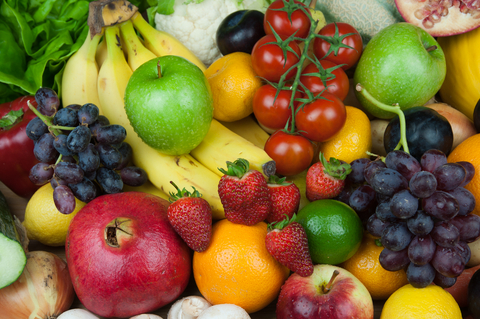 As much as I love to discuss all things skin care, I’m also passionate about health and wellness. I spend hours following a number of blogs and scanning the latest scientific literature to keep abreast of current developments. That’s one reason why a recent article in the Globe and Mail: “Debate Over Calories Starting To Erode the Food Pyramid” caught my attention.
As much as I love to discuss all things skin care, I’m also passionate about health and wellness. I spend hours following a number of blogs and scanning the latest scientific literature to keep abreast of current developments. That’s one reason why a recent article in the Globe and Mail: “Debate Over Calories Starting To Erode the Food Pyramid” caught my attention.
The article discusses a growing body of research from a diverse group of scientists who suggest the energy the body derives from different types of foods varies widely, even when the caloric content appears to be identical. The findings point up the inadequacies in a system that originated in the late 19th century, when a professor of chemistry laid the foundations for the caloric content of major food macronutrients – fats, carbohydrates and proteins. A modified version of these original calculations are the basis for determining the energy content of foods today. They also underlie the classic “food pyramid” created by the U.S. Department of Agriculture in 1992 and since modified, which recommends a diet that is relatively high in breads and cereals relative to proteins and fats. They believe that this discrepancy could be adding to the obesity epidemic, by pushing consumers toward foods that seem to contain fewer calories but are more processed and therefore easier to translate into body fat.
Foods that are closer to their natural state, including whole grains, fruits and vegetables, require additional work to digest and metabolize, so that the net energy they impart is less than the original system of calorie counting would suggest. Most nutritionists would agree. Today, the processing of food through industrial means (cooking, etc) make it so easy to absorb food energy that obesity is the inevitable result.
Some researchers believe that a low GI diet (the glycemic index or GI is a measure of the rise in blood-sugar levels after the consumption of different foods) may offer the “best compromise” between reducing energy intake overall and avoiding other potential health issues that may arise on a diet that is rich in protein.
It’s an interesting time for food research and we are probably still at the beginning of, understanding the science. That said, it doesn’t take rocket science to appreciate that a bowl of Corn Flakes with milk probably isn’t as good for you as a leafy green salad topped with chicken breast, even if the latter has more calories.

